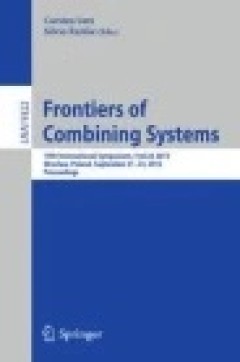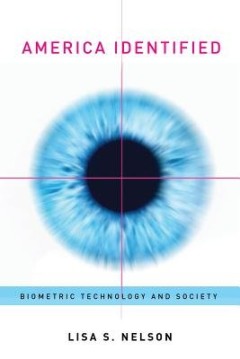Filter by

Managing sustainable luxury and digitalization :technology trends and ethical…
Defining luxury in the watch industry: exploring the gestalt of Swiss luxury watches -- Trends and challenges in the Swiss luxury watch industry: insights from an expert survey -- Luxury watches and ethical hubris: a comparative overview of illustrative cases -- Gestalt-switch of luxury products: exploring pitfalls of inconsistent value expressions in conspicuous consumption -- "Some of my cust…
- Edition
- -
- ISBN/ISSN
- 9781003397205
- Collation
- -
- Series Title
- -
- Call Number
- -

Bioimage Data Analysis Workflows ‒ Advanced Components and Methods
This open access textbook aims at providing detailed explanations on how to design and construct image analysis workflows to successfully conduct bioimage analysis. Addressing the main challenges in image data analysis, where acquisition by powerful imaging devices results in very large amounts of collected image data, the book discusses techniques relying on batch and GPU programming, as w…
- Edition
- 1
- ISBN/ISSN
- 978-3-030-76394-7
- Collation
- -
- Series Title
- Learning Materials in Biosciences
- Call Number
- X, 212

Multiscale Biomechanics and Tribology of Inorganic and Organic Systems
This open access book gathers authoritative contributions concerning multiscale problems in biomechanics, geomechanics, materials science and tribology. It is written in memory of Sergey Grigorievich Psakhie to feature various aspects of his multifaceted research interests, ranging from theoretical physics, computer modeling of materials and material characterization at the atomic scale, to app…
- Edition
- -
- ISBN/ISSN
- 978-3-030-60126-3
- Collation
- -
- Series Title
- -
- Call Number
- -

The not-two :logic and God in Lacan
In The Not-Two, Lorenzo Chiesa examines the treatment of logic and God in Lacan's later work. Chiesa draws for the most part from Lacan's Seminars of the early 1970s, as they revolve around the axiom "There is no sexual relationship." Chiesa provides both a close reading of Lacan's effort to formalize sexual difference as incompleteness and an assessment of its broader implications for philosop…
- Edition
- -
- ISBN/ISSN
- 9780262335034
- Collation
- 1 online resource (xxiii, 251 pages).
- Series Title
- -
- Call Number
- -

Sharing cities :a case for truly smart and sustainable cities
The work makes a case for understanding cities as shared spaces and venues for collaboration; and proposes policies and practices to share cities fairly. It argues that with modern technologies the intersection of urban space and cyberspace provides an unrivalled platform for more just, inclusive and environmentally efficient economies and societies rooted in a sharing culture.OCLC-licensed ven…
- Edition
- -
- ISBN/ISSN
- 9780262329705
- Collation
- 1 online resource (x, 445 pages) :illustrations.
- Series Title
- -
- Call Number
- -

New Horizons in Systemic Practice with Children and Families
This open access book illustrates how systemic theory, as both a meta-theory and a relational organic theory, can be a suitable framework for understanding and appreciating the new horizons of systemic practice with children and families in their various contexts. The different chapters shed light on how systemic perspectives, as they are presented in their varying contexts, promote hope by giv…
- Edition
- -
- ISBN/ISSN
- 978-3-031-38110-2
- Collation
- XIV, 203
- Series Title
- -
- Call Number
- -

Radiobiology Textbook
This open access textbook focuses on the various aspects of radiobiology. The goal of radiobiological research is to better understand the effects of radiation exposure at the cellular and molecular levels in order to determine the impact on health. This book offers a unique perspective, by covering not only radiation biology but also radiation physics, radiation oncology, radiotherapy, radioch…
- Edition
- -
- ISBN/ISSN
- 978-3-031-18809-1
- Collation
- XXVII, 667
- Series Title
- -
- Call Number
- -

Frontiers of Combining Systems
This book constitutes the proceedings of the 10th International Symposium on Frontiers of Combining Systems, FroCoS 2015, held in Wroclaw, Poland, in September 2015. The 20 papers presented in this volume were carefully reviewed and selected from 34 submissions. They were organized in topical sections named: description logics; theorem proving and model building; decision procedures; decisio…
- Edition
- -
- ISBN/ISSN
- 978-3-319-24246-0
- Collation
- XVI, 275
- Series Title
- Lecture Notes in Computer Science
- Call Number
- -

Agricultural Implications of Fukushima Nuclear Accident (IV)
This open access book presents the findings from on-site research into radioactive cesium contamination in various agricultural systems affected by the Fukushima Daiichi Nuclear Power Plant accident in March 2011. This fourth volume in the series reports on studies undertaken at contaminated sites such as farmland and forests, focusing on soil, water, mountain, agricultural products, and animal…
- Edition
- -
- ISBN/ISSN
- 978-981-19-9360-2
- Collation
- XIII, 276
- Series Title
- -
- Call Number
- -

America Identified: Biometric Technology and Society
An examination of the public perception of biometric identification technology in the context of privacy, security & civil liberties.OCLC-licensed vendor bibliographic record.
- Edition
- -
- ISBN/ISSN
- 9780262289689
- Collation
- 1 online resource (viii, 258 pages) :illustrations
- Series Title
- -
- Call Number
- -
 Computer Science, Information & General Works
Computer Science, Information & General Works  Philosophy & Psychology
Philosophy & Psychology  Religion
Religion  Social Sciences
Social Sciences  Language
Language  Pure Science
Pure Science  Applied Sciences
Applied Sciences  Art & Recreation
Art & Recreation  Literature
Literature  History & Geography
History & Geography